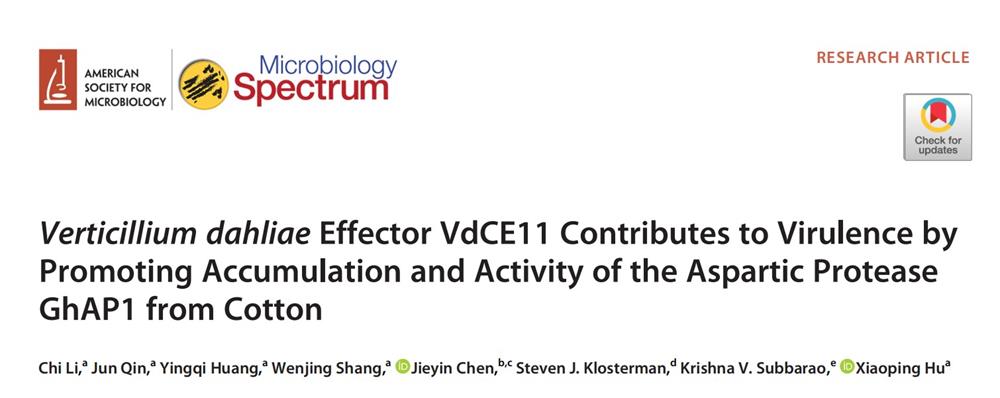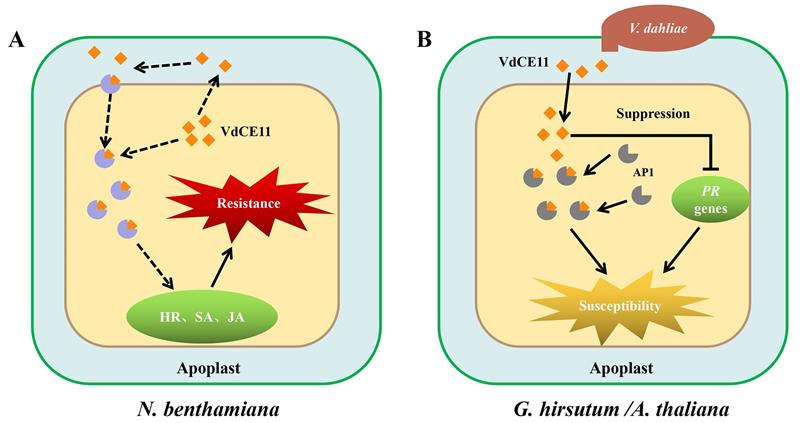- NEWS
-
-
The research team published a research paper entitled "Verticillium dahliae effector VdCE11 contributes to virulence by promoting accumulation and activity of the aspartic protease GhAP1 from cotton" online today in Microbiology Spectrum. This study reveals that an effector protein VdCE11 of Verticillium dahliae plays an important role in its interaction with the host, and elucidates the molecular mechanism of its regulation of the susceptibility factor GhAP1 to reduce the resistance of cotton to Verticillium dahliae. Professor Hu Xiaoping is the corresponding author of the paper, and Ph.D student Li Chi is the first author of the paper.

Verticillium dahliae is a typical soilborne vascular pathogenic fungus with a wide range of hosts and is difficult to control, causing huge economic losses worldwide every year. Effector proteins play an important role as an important weapon in the process of pathogenic bacteria infection. Clarification of the molecular mechanism of effector proteins regulating host immunity can not only deepen the understanding of the interaction between Verticillium dahliae and the host, but also have a certain effect on breeding against Verticillium wilt.

Functional model of Verticillium dahliae effector protein VdCE11 in different hosts
Associate Professor Shang Wenjing, Associate Professor Qin Jun, master student Huang Yingqi, researcher Chen Jieyin from the Institute of Plant Protection, Chinese Academy of Agricultural Sciences, Professor Krishna Subbarao from the UC Davis, and researcher Steven Klosterman from the US Department of Agriculture participated in the research. The research was funded by the Ministry of Science and Technology's International Cooperation Key Project (2018YFE0112500), the Shaanxi Provincial Natural Science Basic Research Program (2021JQ-146), and the Central University Fundamental Research Fund Special Project (2452021136).